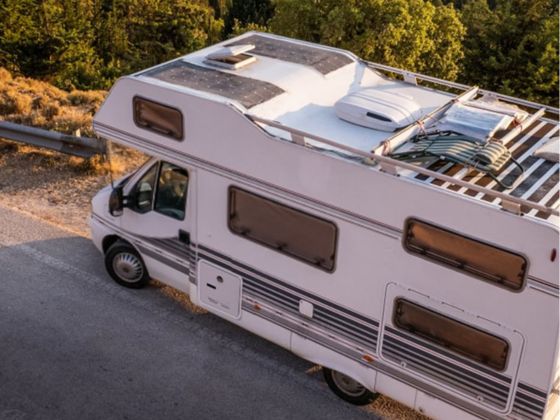A propane water heater is a reliable and efficient solution for providing hot water in homes, RVs, and outdoor settings. Whether you are using it for camping, an off-grid cabin, or as a primary water heating source, propane-powered models offer numerous benefits, including energy efficiency and portability. However, like any gas-powered appliance, safety precautions must be followed to ensure proper operation and prevent potential hazards.
If you are considering purchasing a propane water heater, understanding its safety features and best practices for use is essential. Following the right precautions will help you maximize efficiency while reducing risks such as gas leaks, carbon monoxide exposure, and fire hazards.
1. Install the Propane Water Heater in a Well-Ventilated Area
Proper ventilation is crucial when using a propane water heater, as propane combustion produces carbon monoxide (CO), an odorless and deadly gas. To minimize risk:
-
Install outdoor models in open areas where fumes can disperse safely.
-
For indoor use, ensure the area has adequate ventilation, such as an exhaust vent or a window nearby.
-
Never operate a propane water heater in a confined or poorly ventilated space like a small tent or a tightly sealed room.
2. Regularly Inspect for Gas Leaks
A gas leak is one of the most serious risks associated with propane appliances. Before each use, perform a simple leak test:
-
Mix soap and water in a spray bottle and apply it to the propane connections.
-
Turn on the propane supply and watch for bubbles forming, which indicate a leak.
-
If you detect a leak, turn off the gas supply immediately, tighten the connections, and test again. If the issue persists, seek professional assistance.
3. Keep Flammable Materials Away
Propane water heaters generate heat, making it essential to keep flammable objects at a safe distance. To prevent fire hazards:
-
Maintain at least three feet of clearance from flammable materials, such as paper, plastic, and fabric.
-
Avoid placing the heater near gas cans, propane tanks, or other combustible liquids.
-
Never store propane cylinders indoors or in direct sunlight, as excessive heat can increase the risk of an explosion.
4. Use the Right Propane Tank and Secure It Properly
Not all propane tanks are the same, so always use the one recommended by the manufacturer. Additionally:
-
Ensure the propane tank is placed on a stable, level surface to prevent tipping over.
-
Store and transport propane cylinders in an upright position to prevent leaks.
-
Close the tank valve when the heater is not in use to minimize gas loss and potential hazards.
5. Monitor Carbon Monoxide Levels
Since propane combustion can produce carbon monoxide, installing a CO detector in your home, RV, or camping area is a smart precaution. To ensure safety:
-
Test CO detectors regularly and replace batteries as needed.
-
If the detector sounds an alarm, turn off the heater immediately and ventilate the area.
-
Do not operate the heater if you feel dizzy, nauseous, or experience headaches, as these could be symptoms of CO poisoning.
6. Follow the Manufacturer’s Instructions
Every propane water heater model has unique specifications and safety requirements. To ensure proper operation:
-
Read and follow the manufacturer’s installation, usage, and maintenance instructions.
-
Do not modify the heater or attempt DIY repairs that could compromise safety.
-
If in doubt, consult a professional technician for installation or troubleshooting assistance.
7. Protect the Heater from Extreme Weather Conditions
Exposure to harsh weather conditions can damage your propane water heater. To extend its lifespan and ensure safe operation:
-
Use a protective cover or store it in a sheltered location when not in use.
-
Avoid operating the heater in strong winds, as this can blow out the flame and cause gas buildup.
-
In freezing temperatures, drain the heater to prevent water from expanding and damaging internal components.
8. Shut Off the Heater When Not in Use
Leaving a propane water heater running unattended increases the risk of overheating, gas leaks, and fire hazards. Best practices include:
-
Turning off the heater when leaving the area or before going to sleep.
-
Ensuring all gas valves are closed after use to prevent accidental leaks.
-
Allowing the unit to cool down before handling or storing it.
9. Schedule Regular Maintenance and Inspections
Routine maintenance is essential for keeping your propane water heater functioning safely and efficiently. Maintenance tips include:
-
Cleaning burner components to remove dust, dirt, and debris that may affect combustion.
-
Checking hoses and connections for wear, cracks, or leaks.
-
Descaling the heater periodically to prevent mineral buildup, which can reduce efficiency.
10. Be Prepared for Emergencies
Even with all safety precautions in place, emergencies can happen. It is important to:
-
Keep a fire extinguisher nearby that is rated for gas and electrical fires.
-
Have emergency contact numbers readily available in case of gas leaks or malfunctions.
-
Educate family members or camping companions on how to shut off the propane supply and operate safety devices.
Conclusion
Using a propane water heater can greatly enhance outdoor experiences and provide a reliable source of hot water. However, safety should always be a top priority. By following these key precautions—such as ensuring proper ventilation, checking for leaks, keeping the unit clear of flammable materials, and conducting regular maintenance—you can use your propane water heater efficiently while minimizing risks. Whether at home, in an RV, or at a campsite, these safety tips will help you enjoy warm water with peace of mind.
